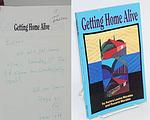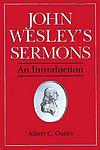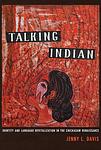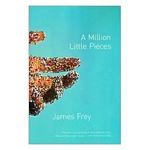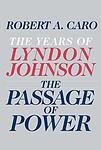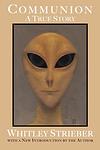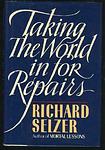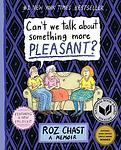The Greatest American "Nonfiction, Fiction" Books Since 1970
Click to learn how this list is calculated.
This list represents a comprehensive and trusted collection of the greatest books. Developed through a specialized algorithm, it brings together 288 'best of' book lists to form a definitive guide to the world's most acclaimed books. For those interested in how these books are chosen, additional details can be found on the rankings page.
Genres
Countries
Date Range
Reading Statistics
Click the button below to see how many of these books you've read!
Download
If you're interested in downloading this list as a CSV file for use in a spreadsheet application, you can easily do so by clicking the button below. Please note that to ensure a manageable file size and faster download, the CSV will include details for only the first 500 books.
Download-
1. Fear and Loathing in Las Vegas: A Savage Journey to the Heart of the American Dream by Hunter S. Thompson
This book is a semi-autobiographical novel that chronicles the adventures of a journalist and his attorney as they embark on a drug-fueled trip to Las Vegas. The narrative is a wild and hallucinatory exploration of the American Dream, filled with biting social commentary and outrageous antics. The protagonist's quest for the American Dream quickly devolves into an exploration of the darker side of human nature, highlighting the excesses and depravities of 1960s American society.
-
2. The Executioner's Song by Norman Mailer
"The Executioner's Song" is a true crime novel that tells the story of Gary Gilmore, a man who, after being released from prison, embarks on a murder spree in Utah that leads to his capture and execution. The book delves into Gilmore's troubled life and psyche, his relationships, and the legal and moral debates surrounding his death sentence. It provides an in-depth look at the American criminal justice system and capital punishment.
-
3. What Is the What by Dave Eggers
The novel is a fictionalized account of a real-life Sudanese refugee, Valentino Achak Deng, who was forced to flee from his village during the Second Sudanese Civil War. The story follows his harrowing journey as a child through Ethiopia and Kenya, his life in various refugee camps, and his eventual resettlement in the United States. The book explores themes of survival, identity, and the power of storytelling, while shedding light on the tragic history and ongoing humanitarian crisis in Sudan.
-
4. Women Of The Shadows by Ann Cornelisen
"Women of the Shadows" is a poignant exploration of the lives of five Italian women in the impoverished region of southern Italy during the mid-20th century. The book delves into the personal narratives of these women, revealing the harsh realities and societal expectations they face. Through intimate portraits, the author uncovers the strength and resilience of these women as they navigate a world of limited opportunities, traditional gender roles, and the struggle for self-determination. The work serves as both a testament to the enduring spirit of these individuals and a critique of the cultural and economic conditions that shape their lives.
-
5. In My Mother's House by Kim Chernin
"In My Mother's House" is a poignant exploration of the complex relationship between a daughter and her mother, set against the backdrop of the daughter's journey to understand her own identity and the influence of her mother's past. The narrative delves into themes of feminism, psychoanalysis, and Jewish cultural heritage, as the daughter grapples with her mother's expectations and the weight of generational trauma. Through a blend of memoir and fiction, the book examines the intricate bonds of family and the struggle for self-definition in the shadow of a powerful maternal figure.
-
6. Patrimony by Philip Roth
The book is a poignant non-fiction account that delves into the complex relationship between a son and his aging father, who is grappling with a fatal brain tumor. As the father's health deteriorates, the son is confronted with the impending loss and the weight of familial duty, love, and the shared history that binds them. The narrative is a deeply personal exploration of identity, memory, and mortality, offering a raw and honest look at the challenges of caregiving and the process of saying goodbye to a loved one. Through this journey, the son gains a deeper understanding of his father's life and legacy, as well as his own place in the continuum of their family's story.
-
7. Getting Home Alive by Aurora Levins Morales and Rosario Morales
"Getting Home Alive" is a poignant collection of stories and poems that weave together the experiences of a mother and daughter, reflecting on their rich Puerto Rican heritage, their lives in the United States, and the intersection of their personal and political struggles. The work delves into themes of feminism, identity, colonialism, and social justice, offering a raw and intimate exploration of what it means to navigate the complexities of culture, family, and survival. Through a tapestry of vivid narratives and lyrical reflections, the book captures the resilience and determination of two women bound by blood and their shared journey toward empowerment and belonging.
-
8. Fear and Loathing on the Campaign Trail '72 by Hunter S. Thompson
This book is a visceral, first-person account of the 1972 presidential campaign, as seen through the eyes of a maverick journalist. It blends political analysis, cultural commentary, and personal anecdotes to capture the chaotic spirit of the election that pitted incumbent President Richard Nixon against Democratic challenger George McGovern. The narrative is infused with the author's signature gonzo style, characterized by a highly subjective and often satirical approach to journalism. Through a series of articles originally written for a major magazine, the book delves into the machinations of political operatives, the mood of the American electorate, and the dark underbelly of the campaign trail, all while grappling with the broader implications of the American political system.
-
9. Silent Dancing by Judith Ortiz Cofer
"Silent Dancing" is a poignant collection of autobiographical essays and poetry that weave together the memories of a Puerto Rican girl growing up in two worlds: the vibrant, warm island of her birth, and the cold, often unwelcoming urban landscape of New Jersey. Through a series of reflective and lyrical narratives, the author explores the complexities of her bicultural identity, dealing with themes of family, language, and the search for a sense of belonging. Her stories oscillate between the past and the present, capturing the nostalgia for a homeland left behind and the challenges of navigating a new American life, all while trying to hold onto her cultural heritage and personal history.
-
10. John Wesley's Sermons: An Anthology by Albert C. Outler
This anthology is a compilation of sermons by John Wesley, a renowned theologian and co-founder of Methodism. The sermons cover a wide range of theological and moral themes, offering a comprehensive insight into Wesley's spiritual teachings and beliefs. They reveal his profound understanding of Christian faith and his commitment to the application of religious principles in daily life. The anthology serves as a valuable resource for those interested in Wesleyan theology, Methodism, and Christian spirituality.
-
11. Talking Indian by Anna Lee Walters
The book is a poignant exploration of Native American identity and the complexities of cultural preservation amidst the backdrop of modern America. Through a series of interconnected stories, the narrative delves into the lives of various characters as they navigate the challenges of maintaining their ancestral traditions and language in a society that often marginalizes their heritage. The author weaves a tapestry of personal and communal experiences, reflecting on themes of memory, loss, and resilience, ultimately presenting a heartfelt examination of what it means to "talk Indian" in a world where such identities are constantly under pressure.
-
12. Superfiction by Joe David Bellamy
"Superfiction" is a collection of essays that explores the concept of "superfiction," a term coined by the author to describe a new kind of writing that blends traditional storytelling with contemporary literary techniques. The book examines how this new form of fiction can be used to create more complex and engaging narratives, and provides an in-depth analysis of works by various authors who have embraced this style. It also discusses the evolution of literary criticism and the role it plays in shaping our understanding of literature.
-
13. Alexander Hamilton by Ron Chernow
"Alexander Hamilton" by Ron Chernow is a comprehensive biography of one of America's founding fathers. The book chronicles Hamilton's life from his impoverished childhood in the Caribbean to his rise as a key figure in the American Revolution and his role in shaping the country's early government. Chernow delves into Hamilton's complex personality, his political and economic philosophies, and his tumultuous personal life, including his infamous affair with Maria Reynolds. The biography sheds light on Hamilton's lasting impact on American politics and economics, and his legacy as one of the most influential figures in the nation's history.
-
14. A Million Little Pieces by James Frey
The book is a controversial memoir that details the author's intense struggle with addiction, chronicling his experiences from the depths of substance abuse to the painful path of recovery. It vividly portrays his time in a rehabilitation facility, the colorful characters he meets there, and the personal demons he battles along the way. The narrative delves into themes of redemption, the harsh realities of addiction, and the complex journey towards self-forgiveness and healing, despite later being revealed to contain fabrications and embellishments of the author's experiences.
-
15. The Water Is Wide by Pat Conroy
"The Water Is Wide" is a memoir that details the author's experiences as a young, idealistic teacher on Yamacraw Island, a predominantly Black community off the coast of South Carolina. He is shocked by the lack of resources and the poor educational standards of the school, and he embarks on a mission to provide the children with a proper education. However, his unconventional teaching methods and attempts to introduce the children to the wider world are met with resistance from the school's administration and the island's isolationist attitudes.
-
16. The Passage Of Power: The Years Of Lyndon Johnson by Robert Caro
"The Passage of Power: The Years of Lyndon Johnson" by Robert Caro is the fourth volume in his acclaimed biography of the 36th President of the United States. This book covers the years from 1958 to 1964, including Johnson's ascent to the presidency following the assassination of John F. Kennedy. Caro explores Johnson's struggles to pass civil rights legislation, his relationship with Kennedy's family, and his efforts to establish his own presidential legacy. The book also delves into Johnson's personal life, including his marriage to Lady Bird Johnson and his health issues. Overall, "The Passage of Power" provides a comprehensive and insightful look into one of the most complex and consequential figures in American political history.
-
17. Communion by Whitley Strieber
The book is a gripping account of the author's personal experiences with unidentified flying objects and alleged extraterrestrial beings. It delves into a series of encounters that challenge the boundaries of reality, beginning with strange occurrences at a secluded cabin and culminating in face-to-face interactions with mysterious visitors. The narrative explores themes of fear, curiosity, and the search for understanding as the author grapples with the implications of his experiences, questioning the nature of consciousness and what it means to be human in a universe where we may not be alone. The book has sparked considerable debate and has become a seminal work in the UFO and alien encounter literature.
-
18. Taking the World in for Repairs by Richard Selzer
"Taking the World in for Repairs" is a collection of short stories that explore the human condition through a variety of lenses. The author, a surgeon, uses his medical background to delve into the complexities of life and death, love and loss, and the inherent beauty and tragedy of the human experience. Each story offers a unique perspective on life's most profound questions, providing readers with thought-provoking insights into the nature of humanity.
-
19. How To Change Your Mind: What The New Science Of Psychedelics Teaches Us About Consciousness, Dying, Addiction, Depression, And Transcendence by Michael Pollan
In "How To Change Your Mind," Michael Pollan explores the history, science, and potential therapeutic uses of psychedelic drugs such as LSD and psilocybin. He interviews researchers, therapists, and individuals who have undergone psychedelic experiences, and shares his own personal experiences with these substances. Pollan argues that psychedelics have the potential to unlock new understandings of consciousness, spirituality, and mental health, and could offer new treatments for addiction, depression, and end-of-life anxiety. He also explores the cultural and political factors that led to the demonization and criminalization of these substances, and advocates for a reevaluation of their legal status in order to facilitate further research and exploration.
-
20. An American Childhood by Annie Dillard
The memoir provides a vivid portrayal of the author's early years growing up in 1950s Pittsburgh, capturing the joys, challenges, and awakenings of childhood with lyrical prose and keen observations. Through a series of anecdotes and reflections, it explores the development of a young person's mind as she navigates family dynamics, social norms, and her burgeoning passion for nature and literature. The narrative is as much an ode to the innocence and curiosity of youth as it is a contemplation of the process of self-discovery and the formative experiences that shape our understanding of the world and our place within it.
-
21. Dark Money: The Hidden History Of The Billionaires Behind The Rise Of The Radical Righ by Jane Mayer
"Dark Money" by Jane Mayer is an investigative book that delves into the secretive world of political funding by wealthy individuals and corporations. Mayer exposes the hidden history of the billionaires behind the rise of the radical right, including the Koch brothers and their network of donors. She reveals how these donors have used their enormous wealth to shape American politics and policy, pushing their own interests and agendas while undermining democracy. Mayer's book is a sobering reminder of the dangers of unchecked political influence by the ultra-wealthy.
-
22. Can’t We Talk About Something More Pleasant? by Roz Chast
"Can't We Talk About Something More Pleasant?" is a graphic memoir by Roz Chast that explores her relationship with her aging parents as they approach the end of their lives. Chast uses her signature humor and illustrations to navigate the difficult topics of illness, death, and family dynamics. The book captures the universal experience of caring for aging parents and the emotional toll it can take on adult children.
-
23. The Lost Painting by Jonathan Harr
"The Lost Painting" tells the story of a lost masterpiece by Italian Baroque artist Caravaggio, titled "The Taking of Christ." The book follows the journey of a young art historian, Francesca Cappelletti, as she sets out to uncover the painting's whereabouts. Along the way, she encounters a cast of characters including art dealers, art historians, and even a mafia boss. Through meticulous research and a bit of luck, Cappelletti finally locates the painting in a Dublin Jesuit house, where it had been hanging for centuries, unrecognized as a Caravaggio. The book is a captivating tale of art history, detective work, and the power of obsession.
-
24. The Assassins’ Gate: America In Iraq by George Packer
"The Assassins’ Gate: America In Iraq" by George Packer is a detailed account of the United States' involvement in Iraq following the 9/11 attacks. Packer provides an in-depth analysis of the political decisions, military strategies, and cultural misunderstandings that led to the disastrous and ongoing conflict. He also explores the personal stories of soldiers, diplomats, and Iraqis affected by the war. The book offers a critical examination of American foreign policy and its consequences, making it a thought-provoking read for anyone interested in the history of the Iraq War.
-
25. Metaphor and Memory by Cynthia Ozick
In "Metaphor and Memory," the author presents a collection of essays that delve into the intricacies of literature, the power of metaphor, and the significance of memory in shaping human experience and creativity. The work explores the intersection of these themes within the context of Jewish history and identity, literary criticism, and the broader cultural landscape. Through incisive analysis and eloquent prose, the author examines how writers use metaphor to capture the essence of memory, both personal and collective, and how these elements are woven into the fabric of storytelling to illuminate deeper truths about society, morality, and the human condition.
Reading Statistics
Click the button below to see how many of these books you've read!
Download
If you're interested in downloading this list as a CSV file for use in a spreadsheet application, you can easily do so by clicking the button below. Please note that to ensure a manageable file size and faster download, the CSV will include details for only the first 500 books.
Download




